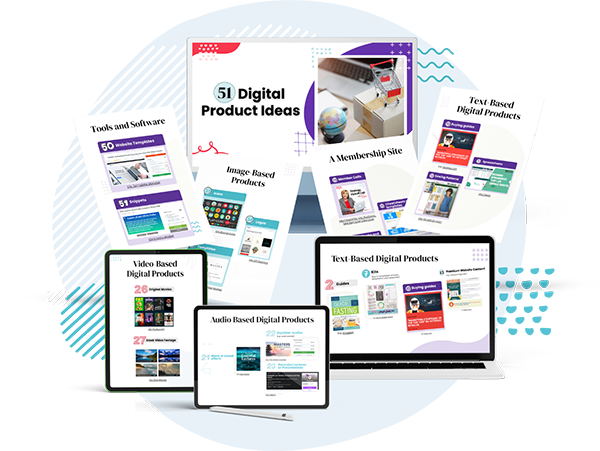How many times have we heard "Content is KING"? There is no denying that content is important but keep in mind that we are producing enough content every 48 hours that is equal to ALL the content since the beginning of time. That's a TON of content! How do we stand out in the sea of info that is out there today?
A lot of people will say the answer is SEO and one of the most-read articles on my site is the article on 7 SEO tips for your blog. People are constantly trying to find the right strategies to inch their way to the top of Google search.
Yes, it's definitely important to use techniques to get your site moving up on search engine results pages (aka, SERP), but even more important is providing quality, relevant, well written content that people actually want to read!
If done correctly, SEO honestly shouldn't actually affect the content of your blog. Are you surprised to read that? You probably know people who would argue with you about your keyword density and the like but as Google keeps changing and refining its algorithms, it has become more and more challenging to "game" the system by using artificial techniques of adding keywords to an article to make it more likely to end up at the top of a Google search.
Instead, Google has become more context sensitive and as a result, the old king of "content alone" has been overthrown!
Actually, that's only halfway true. Context and content work together to provide an ultimate value experience for your audience – it's marketing magic. Without one or the other, something will be lacking and your marketing will suffer.
Without providing useful content, well, your audience really doesn't have a reason to find you and stay engaged with you over time.
But even if you are providing useful content, you won't have the impact with it alone that you would by providing it in the proper context.
What Is Context Marketing?
Because everyone has been focused on content alone, I know that shifting focus to context can be a little confusing. (As if we needed something new to learn in social media, right? <grin>)
So let's talk about what context marketing is. Context marketing is a way of presenting your content positioned in a way that provides the most value for your audience. It's like putting a display of Kleenex in the middle of the cold and flu remedies at the drug store. It's like the way Amazon suggests books you might be interested in based on the items in your shopping cart, its knowledge of what you've been interested in during your previous visits, and the patterns of other people who bought what you're currently purchasing.
In short – context marketing is the practice of knowing your audience so well that you know what knowledge, products or services will be incredibly valuable to them. No fluff, no muss, just VALUE.
Context marketing done right doesn't feel pushy. It feels valuable, useful, and helpful.
How Do You Use Context Marketing Effectively?
The very best way to use context marketing effectively to benefit both your customer and yourself is to know your customer as precisely as possible. (And in reverse, if you don't understand your customer precisely, you will never be able to provide effective context marketing.)
How do you know your customer?
By engaging them on social media. (You had to know that was coming, right?) But seriously – social media is the number one tool for getting to know the precise interests, needs, and challenges of your ideal client so that you can provide exactly what they need – and be their hero in the process!
I've said this over and over again and while many people get it, I still see people and brands of all sizes that still don't get it. Just broadcasting your message on social media without engaging people (providing content that is out of context) isn't useful and can actually hurt your brand. It's seen as spammy, intrusive, and no one likes being on the receiving end of a sales pitch.
On the other hand, providing information that is set in the proper context to solve your ideal client's problem (providing how-to information, providing inspiration, providing hope, providing humor, providing connection, etc.) establishes you as credible, useful, and authoritative. It also increases their desire to do business with you in the future.
Content alone is dead – CONTEXT IS KING! Long live the king!
How are you (or how will you) use context marketing to boost the value of your brand to your customers? Leave a comment below – I'd love to hear!
About Author
Kim Garst
Kim Garst is a renowned marketing strategist and speaker who is trailblazing the use of artificial intelligence in digital marketing. With over 30 years of experience as an online entrepreneur, Kim helps entrepreneurs grow their business and authority online by using AI technology. She is leading the way with proven AI frameworks that help entrepreneurs build authority in their space.
She is keynote speaker and an international best-selling author of Will The Real You Please Stand Up, Show Up, Be Authentic and Prosper in Social Media.
Named by Forbes as a Top 10 Social Media Power Influencer, Kim is well-known for her skill to simplify complex technology and make the use of AI understandable for business growth. Her relatable, actionable advice helps guide new entrepreneurs to harness the power of AI to succeed in digital marketing. Kim is leading the way in combining human and technological skills to create a new model for AI-powered marketing.







Thanks Kim for this very informative and useful article! I am going to use it in my work today! Marcy
Music to my ears, Marcy!
Exactly!
Thanks for informational article explaining context marketing. Look forward to implementing this into my next few posts!
Can’t wait to see what you do!
Thank you Kim for bringing to light the TRUTH there's more to blogging than making a keyword sandwich!
Exactly, Stacy!
Great post Kim, thank you. Makes sense! Thanks for explaining it so well.
Appreciate you dropping in, Kerry!
Oh what fun to work on something new … but I agree context and content are like kissing cousins. Rarely would you have one without the other.
Great analogy!
Love the distinction here Kim! I wouldn't have thought of the difference between context and content quite like that, but it's so true – it's the relationship between the content and the social cues, along with the context of all those things and how they reach your audience (and interact with it!) Nice post!
Thank you, Katrina!
What are you marketing John?
Appreciate the compliments, Sue!
Boiled down, I believe what you are saying to us Kim is know your audience. Content matters most to someone when it is relevant to their context.Good article with relevent content set in context. 🙂
You got it!
Kim, I appreciate your article. But I would argue that anyone doing content marketing right is incorporating context. I think perhaps we are getting into semantics here, but your definition of "context marketing" seems awfully like content marketing from where I stand. It isn't about the quantity of content, but rather the quality and clearly relevance and context are part of that equation. The whole purpose of content marketing is to attract prospects and you'll never do that if your content doesn't have context.
Tim, my point is that so many simply push content out for the sake of ‘content’ and they don’t pay attention to what their audience really is looking for from a ‘context’ standpoint.
Love this- reminds me of “quality time vs. quantity time” in relationships, whether business or personal. Its about deeply understanding what your clients need, sometimes before they know- and brilliantly articulating (with brevity) in a way that makes sense and makes dollars!
Thank you Susan!
Totally agree on the timeliness and planning, Joanna! Thanks for dropping by!
Put your ear to the ground and discover what your ideal client cares about and then give it to them.
Rightly said! Content doesn’t matter without Context. And it’s always better to write for your Audience rather than the Search Engines.
Exactly, Arun!
I appreciate this blog. I am your daily follower and I found your blog very helpful. Thank you for sharing.